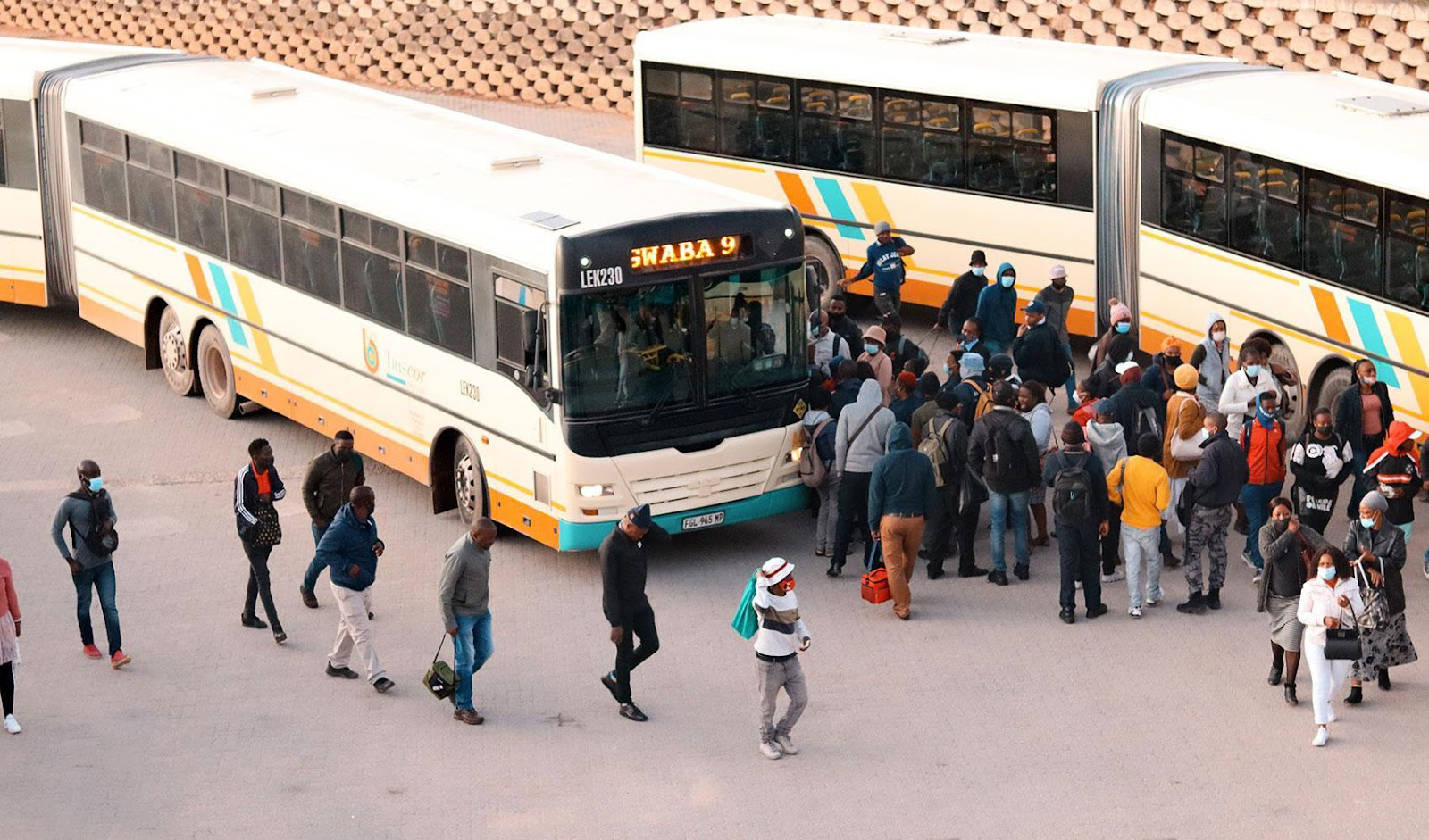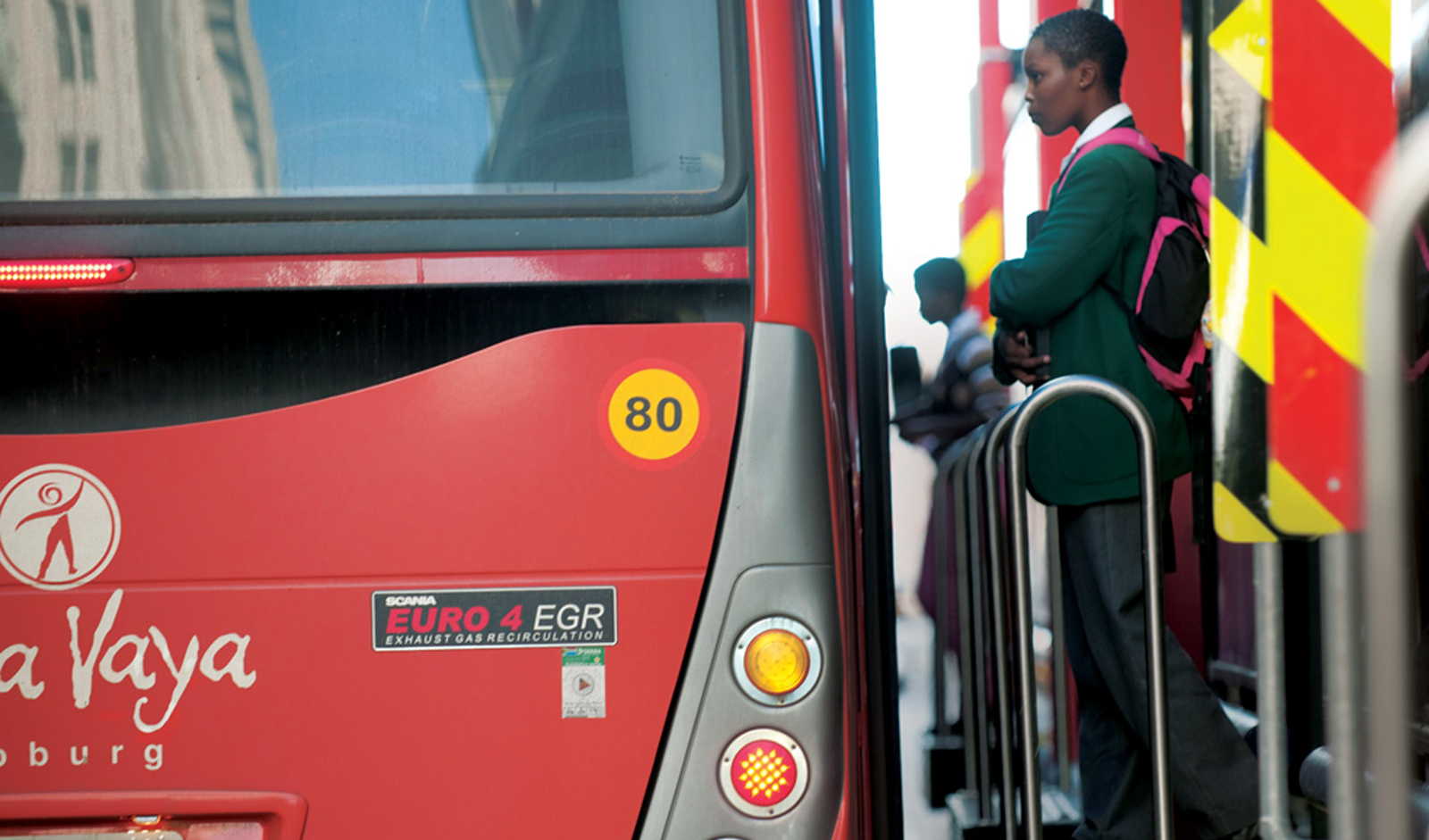Elections done and dusted: what now?
Elections done and dusted: what now?
The elections are done and dusted and many South Africans are probably heaving a sigh of relief… but what does the future hold? SHARMINI NAIDOO says that many challenges lie ahead – not least of all for the bus and coach sector.
Martin Luther King, activist, and political philosopher and one of the most prominent leaders in the US civil rights movement, said that “a riot is the language of the unheard”. Although there is much debate as to what he meant – considering that he was an advocate of non-violence – past history and research seems to support this phenomenon.
According to author and University of Pennsylvania Professor Daniel Q. Gillion, violent protest has a positive impact on political and policy change. “Nonviolent protest brings awareness to an issue; violent protest brings urgency to an issue,” he maintains.
Sadly, violent protest is seen all too often in South Africa. In fact, it is probably the most common form of expression. Alas, the country has faced regular violent and destructive community protests over service delivery; theft and thuggery under the guise of protest action; the burning of schools, barricading of highways, and dumping of refuse; and the stoning and burning of buses, trucks, and tyres with the “burn to be heard” philosophy. Most recently, we have also seen the looting of trucks carrying political paraphernalia coupled with the presence of lawless mobs at voting stations.
So, while these acts and incidents may be predictable, damaging, and seemingly irrational, they can also be explained psychologically – as relative deprivation theory (RDT). This occurs when people perceive a difference between what they have and what they believe they deserve – in other words, they feel relatively deprived. As the perceived disparity grows, so do frustration and resentment, increasing the likelihood for engagement in collective violence. But do these riots and protests really make a difference? Are they positive, sustainable, and meaning the best for the people of the country? And at what cost do they come – both socially and to the country as a whole?
On 29 May this year, South Africans took to the voting stations to cast their ballots for the next administration of a new National Assembly and a new provincial legislature in the nine provinces. They voted in the hope of a brighter future, supporting politicians who have made promises to change the lives of the most stricken.
Amidst various politicking tactics and strategies (some underhanded and some above board), coalitions, and floor crossings to gain seats, we wait to see what the new cabinet will deliver and if their erstwhile promises will materialise.
Along with that, we wait to hear what will become of the various pieces of legislation that are still hanging in the balance post-elections.
The bus industry is still anxiously waiting to hear whether there is room for further consultations and stakeholder engagements on the Broad-Based Black Economic Empowerment (B-BBEE) Transport Charter, and whether a Draft Charter will be published for comment. The industry has not had sight of the final version of the Charter, as it was not agreed to by the transport industry at large.
Other pieces of legislation awaiting promulgation include the Administrative Adjudication of Road Traffic Offences Act (AARTO), South African National Roads Agency (SANRAL) account-based ticketing, and the Employment Equity legislation. The main stakeholders have commented on the draft Subsidy Policy, which introduces a user subsidy and the removal of the Public Transport Operations Grant (PTOG) subsidies to operators. SABOA has requested a one-day in-person workshop with the drafting team and is currently awaiting a date.


The signing of the National Health Insurance (NHI) Bill by President Ramaphosa just before the elections to sway voter opinion – despite concerns raised by multiple stakeholders regarding its financial, constitutional, and operational viability – has already had many consequences. The allure of free health care and more take-home pay has seen many individuals prematurely cancelling their medical aids. They will now have to live with the consequences until, if, and when the NHI becomes operational and effective as a universal health care system.
Gauteng’s negotiated contracts, which were concluded in June 2023, have reached a bump in the road. The province recently informed operators of its intention to rationalise some of the already concluded contracts by between 20 and 30% due to a lack of funds as a result of the inherited e-toll debt. The province announced plans to borrow R13 billion to pay for the SANRAL e-toll project so that “e-tolls will be a thing of the past”, which has sadly come at a cost to bus operators and commuters.
With these issues posing a major challenge and a serious threat to the bus industry, SABOA has included many of these topics in its annual conference. Aptly themed “Sustainability of the Bus Industry” this year’s conference is a one-day event which will take place on 15 August at the Randpark Golf Club.
The bus industry is highly regulated by various well-meaning policies and legislation that have unintended negative consequences for the industry. The heavy reliance on government for its sustainability, viability, reliability, profitability, and operability affects the bus industry more than any of the other commercial sectors.
SABOA is a pioneer in the bus industry and has been hosting successful conferences to bring the industry together for over three decades. Our conferences have always been well supported by both bus operators and suppliers in the industry.
The conference allows for the discussion, debate, and strategising of critical industry issues, as well as business networking. This year, SABOA will also host a mini exhibition and a bus display.
The SABOA conference is one of the most affordable and value-for-money events in the transport industry and delegates have the option to attend in person or online. Highlights on our draft programme include:
- Interaction and updates from government on transport policies and draft regulations
- Expert presentations and panel discussions
- Collaborative platforms to address industry challenges
- Sustainable transport and green solutions
- Latest developments when it comes to the B-BBEE Charter
- Contracting in the bus industry
- Integrated ticketing solutions for the bus industry
- State of the nation post-2024 elections
- Proposed subsidy policy – practicalities and challenges
- Scholar transport policy – strategy, challenges, and possible solutions
- Turnaround of the coach sector
It is vital for the survival, future, and sustainability of the bus industry that bus operators, stakeholders, and suppliers/service providers unite, stand together, participate, and keep up to date on industry issues, so that the industry is taken seriously and remains a key player in the South African economy. The SABOA Annual Conference 2024 is and remains the perfect platform to facilitate this. For more information, please contact tumi@saboa.co.za
Published by
Sharmini Naidoo
focusmagsa




